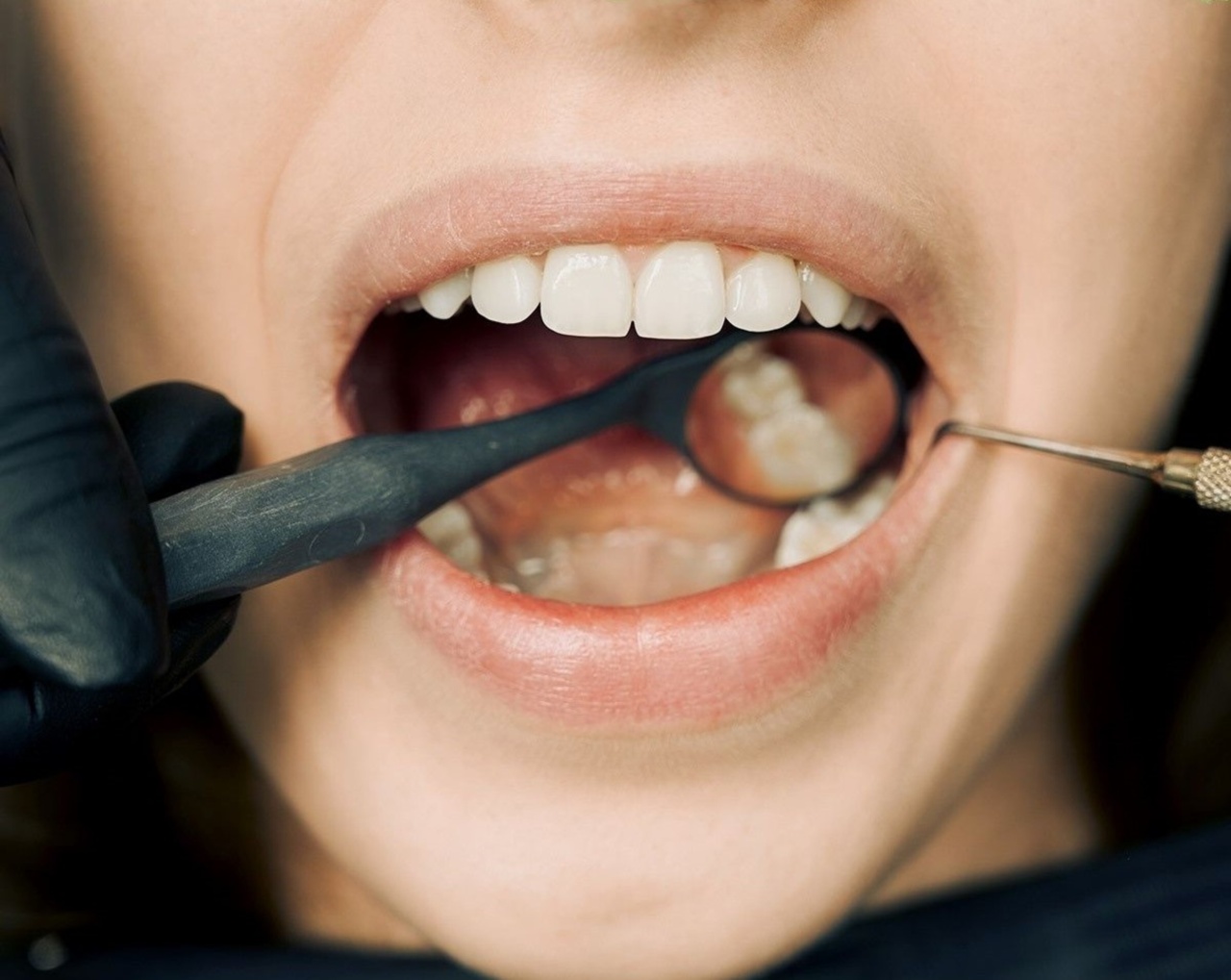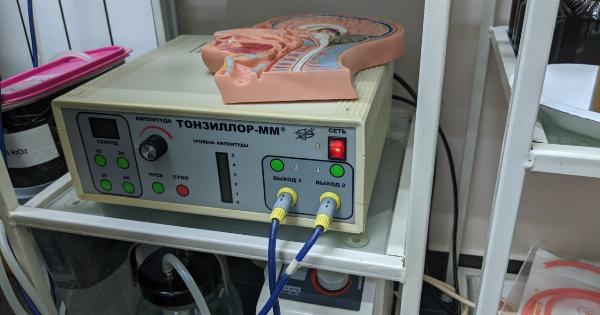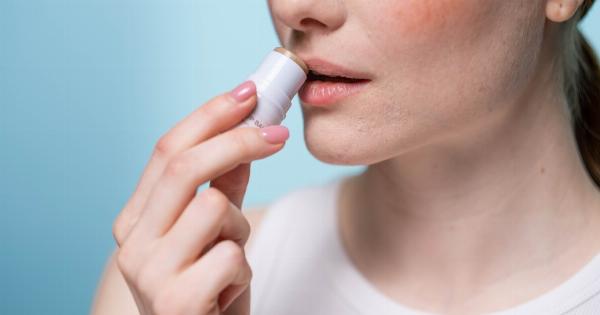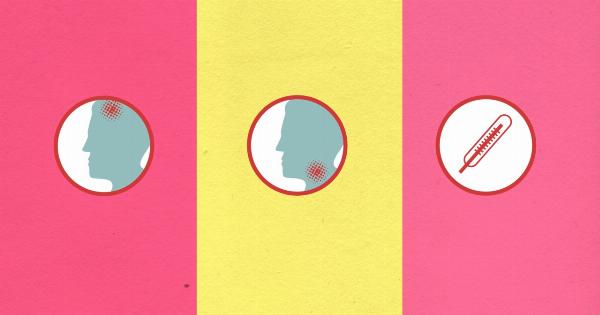Oral thrush, also known as oral candidiasis, is a fungal infection that occurs in the mouth and throat. It is caused by an overgrowth of the Candida fungus, specifically Candida albicans.
While Candida is normally present in small amounts in the mouth, factors like a weakened immune system or changes in the mouth ecosystem can lead to its overgrowth. This can result in the development of white or yellowish patches on the tongue, inner cheeks, palate, and throat.
Common Symptoms of Oral Thrush
The main symptom of oral thrush is the presence of creamy white or yellowish patches in the mouth and throat. These patches may have a cottage cheese-like appearance and can be painful or cause discomfort.
Other symptoms that may accompany oral thrush include:.
- Loss of taste or altered taste sensation
- Redness or soreness in the mouth and throat
- Dryness or cotton-like feeling in the mouth
- Painful swallowing
- Cracking at the corners of the mouth (angular cheilitis)
- Bleeding if the patches are scraped or rubbed
Risk Factors for Oral Thrush
While anyone can develop oral thrush, certain factors increase the risk of its occurrence:.
- Weak immune system: Individuals with weakened immune systems, such as those with HIV/AIDS, cancer, or diabetes, are more susceptible to oral thrush.
- Medications: Certain medications, such as corticosteroids and antibiotics, can disrupt the balance of microorganisms in the mouth, making it easier for Candida to proliferate.
- Dentures: Wearing ill-fitting dentures or not cleaning them properly can contribute to the development of oral thrush.
- Poor oral hygiene: Failing to brush, floss, or rinse the mouth regularly can lead to an overgrowth of Candida.
- Smoking: Tobacco smoking can weaken the immune system and create an environment favorable for the growth of Candida.
- Diet: A diet high in sugar or processed foods can promote the growth of Candida fungus.
- Hormonal changes: Hormonal imbalances, especially in women during pregnancy or while taking oral contraceptives, can increase the risk of developing oral thrush.
Diagnosing Oral Thrush
If you suspect you have oral thrush, it is essential to see a healthcare professional for an accurate diagnosis. The healthcare provider will visually examine the mouth and may perform the following diagnostic tests:.
- Oral examination: The healthcare provider will look for creamy white or yellowish patches on the tongue, inner cheeks, and throat.
- Scraping test: A sterile swab or tongue depressor is used to gently scrape the patches, which can then be examined under a microscope.
- Culture test: If necessary, a sample from the patch may be sent to a laboratory to culture the Candida fungus, confirming the diagnosis.
Treatment Options for Oral Thrush
The treatment of oral thrush aims to eliminate the fungal infection and manage the underlying causes. The options for treating oral thrush include:.
- Antifungal medications: These medications can be topical, such as oral gels or lozenges, or systemic, like oral antifungal tablets or intravenous administration. The choice of medication depends on the severity of the infection and the individual’s overall health.
- Improving oral hygiene: Regularly brushing the teeth, flossing, and rinsing the mouth with warm saltwater can help control the growth of Candida fungus.
- Proper denture care: If dentures are causing oral thrush, it is crucial to clean and maintain them properly to prevent reinfection.
- Treating underlying medical conditions: Managing any underlying health conditions, such as diabetes or immune system disorders, can help prevent recurrent episodes of oral thrush.
- Lifestyle modifications: Making dietary changes and reducing tobacco and alcohol consumption can create an unfavorable environment for Candida growth.
Preventing Oral Thrush
Prevention plays a crucial role in avoiding oral thrush. Here are some preventative measures:.
- Maintain good oral hygiene: Brush teeth at least twice a day with fluoride toothpaste, floss daily, and use an antimicrobial mouthwash.
- Avoid mouthwashes with alcohol: Alcohol-based mouthwashes can disrupt the natural balance of microorganisms in the mouth. Instead, opt for alcohol-free alternatives.
- Limit sugar intake: Candida thrives on sugar. Reducing the consumption of sugary foods and drinks can help prevent its overgrowth.
- Quit smoking: Smoking weakens the immune system and increases the risk of oral thrush. Quitting smoking can significantly reduce the chances of developing the infection.
- Regular dental visits: Routine dental check-ups help identify and address any oral health issues early, reducing the risk of oral thrush.
- Manage underlying health conditions: Properly manage conditions like diabetes or immune system disorders to minimize the risk of oral thrush.
- Clean dentures properly: Remove and clean dentures daily. Soak them in a denture cleaner to eliminate any lingering Candida.
When to Seek Medical Attention
While mild cases of oral thrush can often be managed at home, it is essential to seek medical attention in the following situations:.
- Persistent or worsening symptoms despite home remedies
- Difficulty swallowing or persistent pain
- Recurrent episodes of oral thrush
- Fever or other signs of infection
- Weakened immune system due to a medical condition or medications
Conclusion
Oral thrush is a common fungal infection that can occur in the mouth and throat. It is caused by an overgrowth of Candida fungus, particularly Candida albicans.
While oral thrush can be uncomfortable, it is typically treatable with antifungal medications and lifestyle changes. Maintaining good oral hygiene and addressing any underlying health conditions are essential for preventing the recurrence of oral thrush.
Seeking medical attention is recommended if symptoms persist or worsen, or if there are any other concerning signs.




























